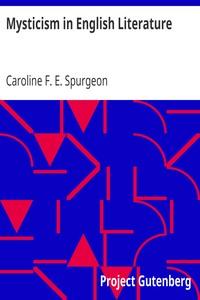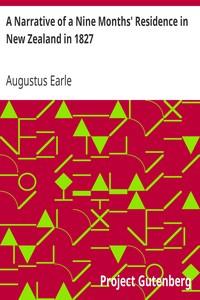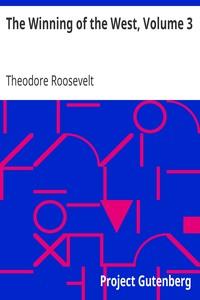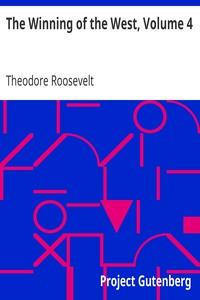|
|
Read this ebook for free! No credit card needed, absolutely nothing to pay.Words: 44610 in 14 pages
This is an ebook sharing website. You can read the uploaded ebooks for free here. No credit cards needed, nothing to pay. If you want to own a digital copy of the ebook, or want to read offline with your favorite ebook-reader, then you can choose to buy and download the ebook.

: Mysticism in English Literature by Spurgeon Caroline F E Caroline Frances Eleanor - English literature History and criticism; Mysticism Great Britain; Mysticism in literature@FreeBooksTue 06 Jun, 2023 Definition of Mysticism. The Early Mystical Writers. Plato. Plotinus. Chronological Sketch of Mystical Thought in England. Shelley, Rossetti, Browning, Coventry Patmore, and Keats. Henry Vaughan, Wordsworth, Richard Jefferies. The Early English Writers: Richard Rolle and Julian; Crashawe, Herbert, and Christopher Harvey; Blake and Francis Thompson. Bibliography Index Mysticism in English Literature Introduction The word itself was originally taken over by the Neo-platonists from the Greek mysteries, where the name of ?????? given to the initiate, probably arose from the fact that he was one who was gaining a knowledge of divine things about which he must keep his mouth shut . Hence the association of secrecy or "mystery" which still clings round the word. Two facts in connection with mysticism are undeniable whatever it may be, and whatever part it is destined to play in the development of thought and of knowledge. In the first place, it is the leading characteristic of some of the greatest thinkers of the world--of the founders of the Eastern religions of Plato and Plotinus, of Eckhart and Bruno, of Spinoza, Goethe, and Hegel. Secondly, no one has ever been a lukewarm, an indifferent, or an unhappy mystic. If a man has this particular temperament, his mysticism is the very centre of his being: it is the flame which feeds his whole life; and he is intensely and supremely happy just so far as he is steeped in it. Mysticism is, in truth, a temper rather than a doctrine, an atmosphere rather than a system of philosophy. Various mystical thinkers have contributed fresh aspects of Truth as they saw her, for they have caught glimpses of her face at different angles, transfigured by diverse emotions, so that their testimony, and in some respects their views, are dissimilar to the point of contradiction. Wordsworth, for instance, gained his revelation of divinity through Nature, and through Nature alone; whereas to Blake "Nature was a hindrance," and Imagination the only reality. But all alike agree in one respect, in one passionate assertion, and this is that unity underlies diversity. This, their starting-point and their goal, is the basic fact of mysticism, which, in its widest sense, may be described as an attitude of mind founded upon an intuitive or experienced conviction of unity, of oneness, of alikeness in all things. From this source springs all mystical thought, and the mystic, of whatever age or country, would say in the words of Krishna-- This fundamental belief in unity leads naturally to the further belief that all things about us are but forms or manifestations of the one divine life, and that these phenomena are fleeting and impermanent, although the spirit which informs them is immortal and endures. In other words, it leads to the belief that "the Ideal is the only Real." Free books android app tbrJar TBR JAR Read Free books online gutenberg More posts by @FreeBooks

: A Narrative of a Nine Months' Residence in New Zealand in 1827 by Earle Augustus - New Zealand Description and travel@FreeBooksTue 06 Jun, 2023
|
Terms of Use Stock Market News! © gutenberg.org.in2025 All Rights reserved.






